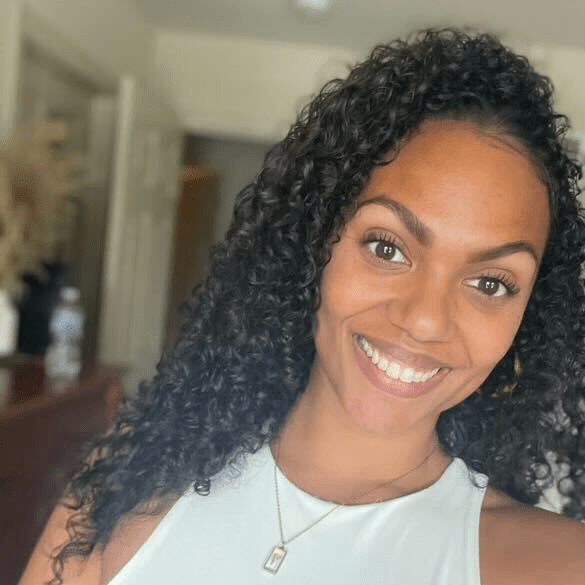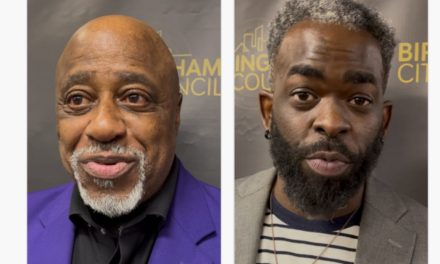By Rev. Dorothy S. Boulware,
Word in Black
I can’t use her name, even if I could remember it after all these years. What I do remember is the visceral pain I felt as I listened to my seminary classmate confess that her husband assaulted her physically, emotionally, and sexually on a regular basis. Most days. But always on Sundays. Just before she was scheduled to assume her role as pastor, just before she had to preach the good news of Jesus Christ.
I felt foolish telling her what I thought was obvious. You are in no way obligated to stay in an abusive relationship. She seemed relieved. It was as if she’d never heard it before.
And she was not alone then. She is not alone now. Many Christian women stay in abusive relationships because they feel it would be unchristian to leave, or because they don’t find the kind of support they need in their church. Or any other church.
Brittney Guary’s story is different, although it’s all one horror story. She could see the warning signs before her relationship was consummated in marriage, but she forged ahead with her plans. In fact, the church offering premarital counseling encouraged her to get married and not worry about the signs that should have dissuaded her.
“I should have known when I saw so much porn around him. It seemed to be an obsession, but he always pushed aside the suggestion that it was a problem. Just like he pushed aside my questions regarding the often naked women in his phone who were starred as favorites,” she tells Word In Black.
She didn’t even fight so much when the physical and emotional abuse was limited to her instead of their children.
“I couldn’t make plans for myself. I couldn’t withdraw money from the bank, but he could without explanation. I finally realized I was losing my voice.”
It wasn’t even when he began to purchase and store large guns with night vision scopes and silencers.
“More than $10,000 would disappear from the same account I couldn’t touch, and he would always minimize his behavior as if I were imagining what was going on,” Guary says.
And when she went to their church for guidance, she was advised to hang in there and maintain her household.
But she did find what she needed.

(Photo Courtesy of Word In Black)
She found a church that helped her gather strength to get away.
At that point, she wasn’t staying anyway. He’d finally made a move she wouldn’t tolerate.
“He picked up our son by the arm and threw him against the wall. I wasn’t going to allow him to abuse our children. It was bad enough what he’d done to me.”
When she confronted her husband about his abuse of her, he’d always apologize. When she confronted him on his abuse of their son, he’d say he hadn’t been exposed to children and didn’t know how to handle them. There was always an excuse.
“I just knew I had to get away. I couldn’t take a chance on what he might do next.”
Her new church helped her do everything she needed to get away. “They counseled me and assured me while God does hate divorce, he certainly doesn’t hate the people involved, and he definitely didn’t want me to stay in that situation,” Guary says.
She did get away, and, when she’s telling her story that she captured in her book “Breaking Free: Healing from Abuse and Trauma,” the number one question she’s asked is, “How did you get away?”
She’s happy to respond because she’d love to be the reason another woman breaks free. And there are so many that need that help.
The Black Women’s Health Project determined that domestic violence is the number one health issue facing Black women: “The data tells a painful truth: 40 percent of Black women will experience domestic violence across their lifetimes, compared to 30.2 percent of White women.”
One has to wonder, if 1 in 3 women will report being abused in their lifetime, how many cases are going unreported? That’s a question asked on the website of Shine a Light on Domestic Violence, a faith-centered ministry that provides domestic violence education, as well as support and resources for victims. Shine a Light calls itself a safe place and also offers training to churches and other entities that would want to be safe places, too.
The Black church gets passing and failing grades in its treatment of domestic violence or intimate partner violence (IPV). In her article “Domestic Violence: In Praise and Rebuke of the Black Church,” Carolyn Morgan, chairperson of the Women of Color Task Force for the Delaware Coalition Against Domestic Violence, explains how while the church has proven to be the supportive, healing place as promised, it has the tendency to commit some unforgivable sins when it comes to IPV.
“Women in the Black church are most often the victims of DV and abuse, and women comprise the majority count of Black church membership,” Morgan wrote. “Men in the Black church are most often the perpetrators of DV and abuse, and men comprise the majority count of Black church leadership. In part, this dynamic contributes to what commonly follows for Black women seeking help from the Black church.”
Morgan ultimately suggested to Black church helpers:
- Do not advise her to stay and pray and allow God to work it out
- Do not meet with her and her spouse or partner together
- Do not tell her to keep the abuse a secret
- Do not suggest to her what has worked for you
And ultimately, do not blame the victim because she hasn’t changed her abuser’s behavior.
This article was originally published by Word In Black.
The post Confronting domestic violence in the Black church appeared first on AFRO American Newspapers.











